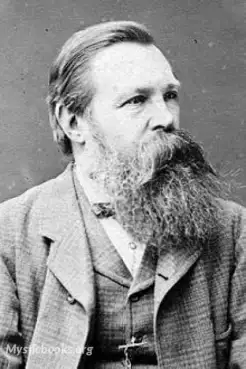
Socialism: Utopian and Scientific
'Socialism: Utopian and Scientific' Summary
The book explains the differences between utopian socialism and scientific socialism, which Marxism considers itself to embody. The book explains that whereas utopian socialism is idealist, reflecting the personal opinions of the authors and claims that society can be adapted based on these opinions, scientific socialism derives itself from reality. It focuses on the materialist conception of history, which is based on an analysis over history, and concludes that communism naturally follows capitalism.
Engels begins the book by chronicling the thought of utopian socialists, starting with Saint-Simon. He then proceeds to Fourier and Robert Owen.
In Chapter Two, he summarizes dialectics, and then chronicles the thought from the ancient Greeks to Hegel.
Chapter Three summarizes dialectics in relation to economic and social struggles, essentially echoing the words of Marx.
Book Details
Language
EnglishOriginal Language
FrenchPublished In
1880Genre/Category
Tags/Keywords
Authors

Friedrich Engels
Germany
Friedrich Engels sometimes anglicised as Frederick Engels (28 November 1820 – 5 August 1895), was a German philosopher, economist, historian, political theorist and revolutionary socialist. He w...
Books by Friedrich EngelsDownload eBooks
Listen/Download Audiobook
- Select Speed
Related books

American Catholic Quarterly Volume 1 by Various
“American Catholic Quarterly” was a magazine published from 1876 to 1924. Founded by Herman J. Heuser and James A. Corcoran, the magazine focused on a...

Utopia (Burnet translation) by Sir Thomas More
This book is all about the fictional country called Utopia. It is a country with an ‘ideal’ form of communism, in which everything really does belong...

The History of England, from the Accession of James II - (Volume 4, Chapter 22) by Thomas Babington Macaulay
The History of England from the Accession of James the Second (1848) is the full title of the five-volume work by Lord Macaulay (1800–1859) more gener...

The Democracy of the Constitution, and other Addresses and Essays by Henry Cabot Lodge
What does it mean to be a self-governing people? In his book The Democracy of the Constitution, and other Addresses and Essays, Henry Cabot Lodge add...

Πολιτεια του Πλατωνα (τομος πρωτος) by Plato (Πλάτων)
The Republic by Plato is a philosophical dialogue that explores the nature of justice and the ideal state. Plato argues that justice is the highest vi...

Bismarck by Georges Lacour-Gayet
This biography of Otto von Bismarck, written by French historian Georges Lacour-Gayet in 1918, provides a concise and insightful account of the life a...

Woman's Love Letters by Sophie M. Almon Hensley
'Woman's Love Letters' is a collection of poems by Sophie M. Almon-Hensley, a Canadian poet, offering a deeply personal and evocative exploration of l...

Story of Old France by H. A. Guerber
This comprehensive historical account of France delves into the nation's past, spanning from its early beginnings to the early 18th century. It covers...

Ιστορίαι (Histories) Βιβλίοv 4 (Book 4) by Thucydides
Thucydides' *Histories* offers a profound and meticulously researched account of the Peloponnesian War, a devastating conflict that pitted Athens agai...

The Mother and the Child by Maria Montessori
"The mother and the child" is a lecture given by Maria Montessori in 1915. The famous educational reformer speaks about the importance to give childre...
Reviews for Socialism: Utopian and Scientific
No reviews posted or approved, yet...